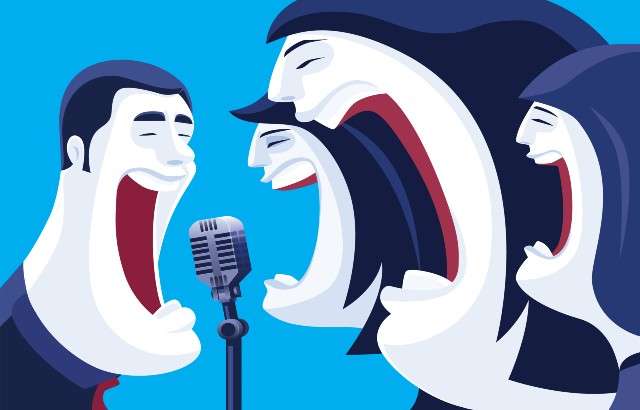 Comedy has been an integral part of Western literature, and it continues to captivate and engage readers across the world. From the satirical works of Aristophanes to Shakespearean comedies to modern-day sitcoms, funny stories have played a significant role in shaping and evolving Western literary tradition. In this blog post, we will explore the importance of comedy in Western literature.
Comedy has been an integral part of Western literature, and it continues to captivate and engage readers across the world. From the satirical works of Aristophanes to Shakespearean comedies to modern-day sitcoms, funny stories have played a significant role in shaping and evolving Western literary tradition. In this blog post, we will explore the importance of comedy in Western literature.
- Historical Perspective
- Ancient Greek and Roman Comedy
- Renaissance Comedy
- Humorous Victorian Literature
What is the historical meaning of comedy?
Comedy has been an essential form of entertainment in various cultures throughout history. Its historical meaning goes back to the ancient Greeks, who used comedy as a form of political and social satire. In early Greek society, plays and comedies were performed in festivals to entertain and educate the public.
Who is known as father of comedy?
Aristophanes is known as the “father of comedy” because of his significant contribution to the development of the genre. He wrote over 40 plays, many of which are considered classics of comedy. Aristophanes’ works satirized Athenian politics and society, using humor and wit to comment on contemporary issues.
What is the origin and development of comedy?
The origin of comedy can be traced back to ancient Greece, where it was an essential part of Athenian drama. As the genre evolved, it spread to other cultures and influenced the development of comedy in medieval and modern times. Today, comedy is a widely popular genre that takes on many different forms, from stand-up comedy to comedic literature and films.
What is the significance of comedy plays?
Comedy plays have a significant impact on society, as they often deal with contemporary issues and provide a satirical commentary on cultural, political, and social norms. They offer a moment of relief and escapism while also exploring the human condition and emotions.
What are the important features of comedy?
Comedy has its unique characteristics, including exaggeration, absurdity, irony, and slapstick humor. It often focuses on mundane situations and everyday life, but through humor, it brings out the unique and absurd qualities of human existence.
What are the characteristics of comedy according to Aristotle?
Aristotle believed that comedy was a genre that portrayed people as worse than they are and
used humor to achieve its goals. According to him, comedy had to be based on the ridiculous and the absurd, and it should not aim at making people laugh but at exposing their flaws.
Comedy has been present since ancient times, and Greek and Roman theatres were a hotbed of
comedic plays. Aristophanes, the Greek playwright, authored several comedies that ridiculed the political class and society. Similarly, Roman playwrights like Plautus and Terence developed their form of comedy that included slapstick humor, mistaken identity and wordplay. The Renaissance was a golden age for literature, and its comedies had a significant influence on modern-day theatre. William Shakespeare wrote several comedies, and his plays like ‘The Merchant of Venice’ and ‘Twelfth Night’ still feature in literature syllabuses worldwide. The 19th Century saw the rise of humorous literature in Victorian England. Charles Dickens’ works such as ‘The Pickwick Papers’ and ‘Oliver Twist’ employed satire and humor to critique the societal structure of the time.
- The Role of Comedy in Literature
- Exploration of societal ills
- Amusing and entertaining audiences
- Addressing serious issues with humor
- Development of literary techniques
One of the primary roles of comedy in literature is to reflect the problems and challenges of the society. Many comedies use humor to expose the ills in society, poke fun at hypocrisy, and provide a critique of social norms. Additionally, comedy is an excellent tool for providing entertainment and amusement to readers. A well-crafted comedy can elicit more laughter than a tragedy can tears. However, it is essential to note that comedy is not merely trivial or light-hearted. In fact, many comedies address serious issues such as discrimination, oppression and marginalization in a subtle and non-threatening way. Furthermore, comic writing has played a substantial role in the development of literary techniques such as satire, irony, and farce.
Connection with Modern-Day Culture
- Influence on mass media
- Popularity of sitcoms
- Social media and Memes
What is comedy tragedy called?
A tragicomedy is a type of play that combines elements of both comedy and tragedy. It uses humor to lighten the mood of tragic situations and emphasizes the resilience and humor of human experience.
Comedy has had a significant impact on modern-day cultural practices. Its influence on mass media cannot be overstated, as many popular TV series, movies, and books employ comic characters and situations. Sitcoms, in particular, have an enormous following worldwide, and streaming platforms have created an ever-increasing demand for them. The rise of social media has also seen the emergence of comedic memes and other forms of humorous content. Comedy has become a pillar of meme culture, and it has transformed the way people communicate and express themselves.
In conclusion, comedy has played a significant role in shaping and developing Western literary tradition. Its relevance continues to be felt in modern-day culture, where it entertains us, provides a critique of society and helps us to find meaning and enjoyment in life. We hope you enjoyed the blog post of Languages Unlimited about Significance of comedy in Western literature. Through comedic literature, we can learn more about ourselves and others, laugh at ridiculous situations and build bridges across cultures. For these reasons, it is essential to acknowledge the significance of comedy in Western literature and celebrate its diverse artistry.

